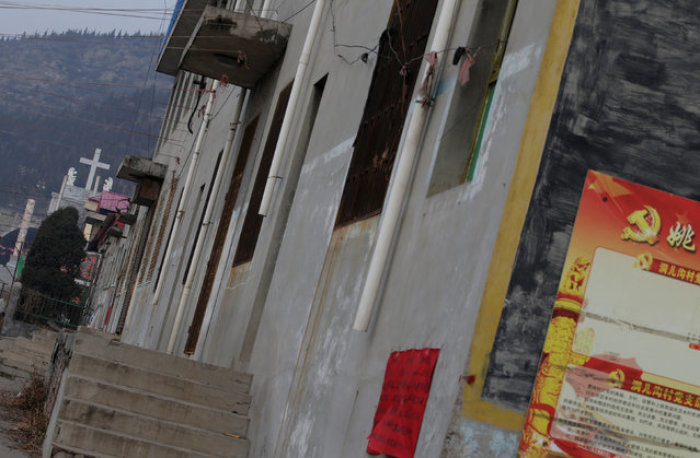China: Authorities plant surveillance tracking devices in religious minorities’ homes

Chinese Communist Party authorities are planting surveillance devices in the homes of religious minorities to monitor and track those they suspect of threatening the country's authoritarian rule.
In recent years, numerous reports have emerged in which members of The Church of Almighty God (CAG), a religious minority group, recount being targeted for investigation and surveillance by China's Communist Party. The monotheistic new religious movement is on China’s list of "xie jiao," or cults that are seen as a threat to state security.
Religious liberty magazine Bitter Winter reports that, after being released from prison in 2018, a CAG member from the eastern province of Zhejiang noticed two men installing a new camera by the entrance to her house. This was the fourth one installed there.
The woman’s mother, also suspected of being CAG member, found a listening device installed behind a washing machine at her home. A few days later, she discovered a micro camera in the garage. When the mother was taken in for interrogation, police officers played a recording of her saying that she was being monitored at home.
In 2018, police arrested a CAG member and interrogated him for 36 hours, requesting information about his wife, son, and sister who were out of town on church matters.
Though under constant surveillance, the father managed to warn his family members not to return home. Police officers continue to visit his home demanding to know the whereabouts of his family.
Additionally, he is required to keep his cellphone on 24 hours a day, while a tracking device was installed on his scooter and a high-definition camera at the only entrance to his residential community.
In September 2019, the government installed two additional surveillance cameras, next to the four existing, opposite the house of a man in his 80s in the northwestern province of Shaanxi.
In October, police searched the home of a CAG member who took care of the man, informing her that he had received information about her through “tracking and monitoring devices.”
This year, numerous HD facial recognition cameras were installed in some villages in the northern province of Hebei, with some directed at the homes of CAG members, Bitter Winter reports. One of the village’s secretaries revealed that the devices had been installed to monitor and arrest believers.
Other religious minority groups — including Christians, Falun Gong and Uighur Muslims — have also experienced increased surveillance and persecution in recent years.
In August, CCP authorities were suspected of hacking a Hong Kong church webinar, monitoring Christians discussing the country’s church-state relations and eventually booting the pastor from the session.
In April, several members of China’s heavily persecuted Early Rain Covenant Church were arrested by communist authorities for participating in an online Easter worship service on Zoom and ordered to cease all religious activity.
In July, two Chinese cyber thieves sanctioned by the U.S. for targeting firms involved in coronavirus research were also accused of hacking the private emails of a Christian house pastor and sharing them with communist officials, leading to his arrest.
Recently, Sam Brownback, U.S. ambassador at large for International Religious Freedom, detailed how China is employing its “most aggressive technology” to oppress Uighur Muslims, including sophisticated cameras, chips inside mobile devices, facial-recognition technology, and collecting DNA samples.
“They've got technology deployed now where they've got surveillance cameras virtually everywhere in the public,” he noted. “They've collected genetic data on most of the people in the region to where you can be tracked on the internet, they have facial recognition systems. They could now theoretically close all the concentration camps and you would still live in a virtual police state if you were a Uighur in Xinjiang.”
Brownback predicted that China's methods represent “the future of religious oppression,” adding that the CCP’s systems will likely be replicated “in other authoritarian regimes around the world.”
China has also been labeled by the U.S. State Department as a “country of particular concern” for “continuing to engage in particularly severe violations of religious freedom.





























